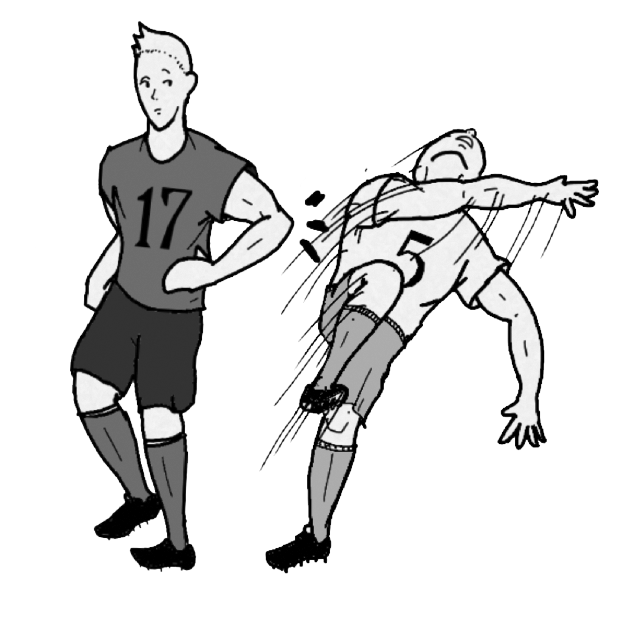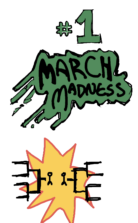
It’s the end of the fourth quarter in the NBA championships, and as a player drives to the basket, he falls to the ground in agony. Although he was barely fouled, those free throw points he earned won him the game. This situation along with many others brings up a controversial question in sports: does flopping in a game really qualify as cheating? There has been an ongoing argument about flopping vs. cheating in the world of sports at all levels, and two arguments emerge: flopping is cheating, and flopping isn’t. In order to fairly recognize both sides, both definitions need to be compared.
Flopping is defined as an intentional fall by a player after little or no physical contact by an opponent, in order to draw a personal foul. Cheating, on the other hand, is defined as acting dishonestly or unfairly in order specifically to gain an advantage, especially in a game or examination.
When examined on the surface, these two definitions are not synonymous. The cheating definition doesn’t specify what type of dishonestly might be included, or specific types of acts that cheating would entail. Some could say that since cheating is not defined specifically, especially for sports, that then places flopping is in a category all on its own. After all, when most people hear the word “cheating,” they think of something school related, such as looking at a partner’s paper during a test or getting the test answers beforehand. There are no shoulders to look over in sports, or answers to get before a game, so does flopping really belong even in the same category as cheating?
The answer is yes. Flopping should definitely be considered as cheating in sports. Flopping has only one goal, which is to draw a foul that quite possibly could change the outcome of the game.
For example, it can be desirable for some soccer players to flop inside the penalty box in order to draw a penalty kick, which are more-often-than-not converted into goals. If that goal is scored, or even if an opponent draws a yellow or red card, then the outcome of the game is entirely different, and therefore, that player gave himself an unfair advantage against the other team, meaning that cheating has occurred.
Flopping gives a player an unfair advantage. It’s winning the game, or giving your team that extra push of points and energy, instead of getting that one question right on a test and getting a better or even perfect score. And an improved score is equal to winning a game, because it makes the team’s record better just like it would improve one’s grade.
Of course in school, there are different levels of classes. There are support classes all the way through to AP’s. And on all levels, cheating is discouraged, frowned upon, and highly punishable. But what about cheating throughout different levels in sports? If flopping is a form of cheating, it too has to be discouraged, frowned upon, and punishable in sports. And it is, only not on all levels, like in school. Professional sports leagues have already established rules to discourage and penalize flopping, for example in a rule in the NFL that states acting on a false injury results in fines and suspensions for coaches, players and clubs. However, those rules definitely don’t translate down to the college and high school levels. Just like in school, there should be consequences for flopping on all levels.
There is also a moral angle that should be covered when discussing cheating in sports. Flopping requires a player to think along the lines of “faking it until they make it,” and it makes the game worse because it gives that team advantages they wouldn’t have otherwise. Some players believe that if you can sell the play well enough to get it called, then you should be allowed to flop. That position offers up an example of an incorrect moral compass; in other words, the player believes it is ok to cheat in a game. This is a belief that needs to be corrected, because for anyone who has ever been on the opposing team when a foul drawn by a flop is called, the flop along with the emotions that follow change the game for the worse.
The saying “winners never cheat and cheaters never win,” doesn’t necessarily always apply to the score. It’s the moral choice people make between right and wrong. Flopping is cheating, and it needs to be penalized appropriately when it occurs in a game, no matter the level.




I don’t even know how anyone can discuss cheating and flopping in the same breath. Making an exaggerated movement to bring attention to a specific action doesn’t give any single player an advantage as anyone can do the same thing. Cheating in my opinion is gaining an advantage unfairly because they are using something outside of the rules that either no one else has access to or is allowed to have. Flopping is neither and is equal opportunity for anyone that does it. It should be up to the official to know whether contact is legit or not.
You sir, are a moron.